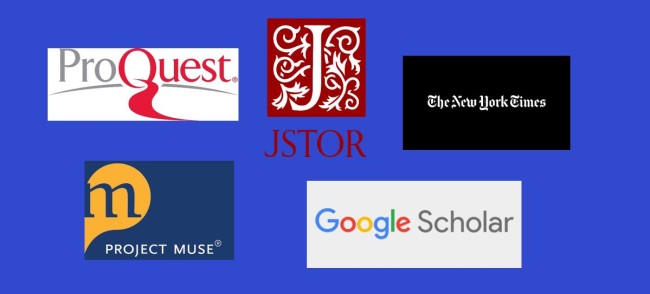By Kenton Rambsy and Howard Rambsy II
We considered varied features of online databases as we collected information on 300 African American texts. We canvased five databases – JSTOR, Project MUSE, ProQuest, Google Scholar, and The New York Times, which has an extensive search function.
Overall, the databases supported our efforts to learn more about coverage of many Black writers and books. We also learned about some of the challenges that emerge when pursuing this kind of project.
We thought critically about the possibilities and limitations of the search engines. We also wondered what these online searches might mean for scholars pursuing African American literary studies.
The databases made it possible for us to collect information about a large number of authors and texts in a relatively short amount of time. We did initial data collection and organization during the course of a couple of months in our spare time. Decades ago, building such a robust dataset on 300 texts would not have been possible.
ProQuest and JSTOR have options for users to download data, which we found especially helpful. We were seeking to construct datasets of materials, and we appreciated that at least some databases anticipate this kind of work. The interface allows us to explore the databases and download quantitative and qualitative information that can be used to make a dataset. The information about scholarly references facilitates our ability to curate data about the scholarship written about Black literature.
References and mentions to a work in an article does not reveal how thoroughly the text is mentioned. There is much in between a casual reference and extended analysis, yet most searches do not easily reveal the difference.
Common words for book titles sometimes cause confusion. Toni Morrison published Beloved in 1987, but in certain databases, there are hits for the combination “Toni Morrison” and “Beloved” prior to 1987. How might databases distinguish between the term “beloved” and the novel Beloved? Similar slippages occur with the portion of the Transatlantic Slave Trade known as “the Middle Passage,” Robert Hayden’s poem “The Middle Passage,” and Charles Johnson’s novel The Middle Passage.
Moving forward, we will look at the databases individually. We will also offer findings of select authors and texts from our research.
Related:

No comments:
Post a Comment